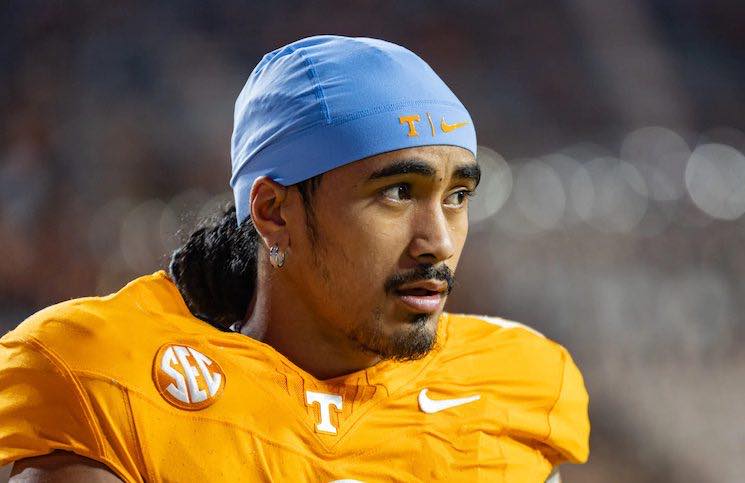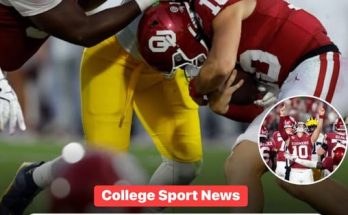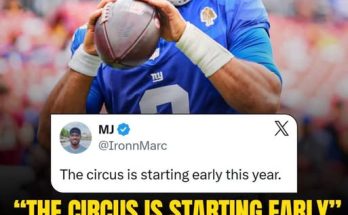Nico Iamaleava, the starting quarterback for the Tennessee Volunteers, has recently made headlines by skipping a team practice, leading to widespread speculation about his future with the program. This absence comes amid reports of ongoing negotiations for a new Name, Image, and Likeness (NIL) deal, raising questions about his commitment to Tennessee and the evolving landscape of college athletics.
Iamaleava’s situation underscores the growing influence of NIL deals in college sports, where financial considerations are increasingly shaping athletes’ decisions and team dynamics. The timing of his absence—just days before Tennessee’s spring game and with the transfer portal window opening on April 16—has intensified speculation about his intentions
Reports indicate that Iamaleava is seeking to renegotiate his current NIL contract, which was reportedly worth $8 million over his college career when he committed to Tennessee in 2022. The original deal included an upfront payment and annual installments, but sources suggest that Iamaleava is now aiming for a new contract worth approximately $4 million per year. This move aligns with recent developments in college football, where players like Carson Beck have secured similar deals after transferring to other programs.
The absence of Iamaleava from practice has reportedly surprised both coaches and teammates, fueling discussions about the potential impact on team morale and performance. While some view this as a strategic move to leverage NIL negotiations, others express concern about the message it sends regarding commitment and professionalism
Tennessee head coach Josh Heupel has yet to publicly address the situation, leading to further uncertainty about Iamaleava’s status with the team. The unfolding events highlight the challenges coaches face in balancing player interests with team cohesion and institutional policies.
As the transfer portal window approaches, the pressure on both Iamaleava and Tennessee to reach an agreement intensifies. For Iamaleava, the decision to remain with Tennessee or explore other opportunities will have significant implications for his college career and future prospects. For Tennessee, retaining a talented quarterback is crucial for maintaining competitiveness in the Southeastern Conference
The situation also raises broader questions about the role of NIL deals in college sports. While these agreements provide athletes with opportunities to profit from their talents, they also introduce complexities related to fairness, equity, and the traditional amateur model. As more players seek to capitalize on their market value, institutions must navigate these challenges to maintain the integrity of college athletics.
Nico Iamaleava’s absence from practice and the ongoing NIL negotiations serve as a microcosm of the evolving dynamics in college sports. The outcome of this situation will likely influence future discussions about NIL policies and the balance between athlete compensation and team unity. As the April 16 transfer portal deadline approaches, all eyes will be on Iamaleava and Tennessee to see how this high-stakes negotiation unfolds.



